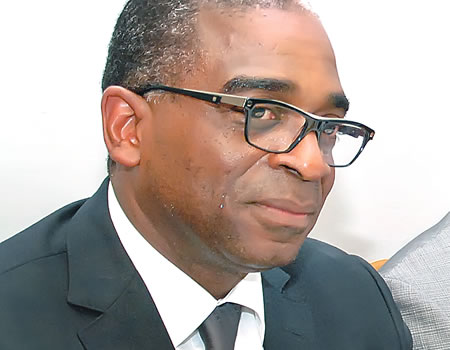The Executive Director of the Nigerian Export Promotion Council (NEPC), Segun Awolowo has stated that the Foreign Direct Investment (FDI) from United Kingdom (UK) into Nigeria could rise from $1 billion to $4.5 billion by 2030.
Awolowo disclosed this at the Nigeria-United Kingdom Trade Diagnostic Study programme in Abuja at the weekend. He said the increase could be achieved through strengthening of bilateral Trade and Investment Cooperation Agreement (TICA).
According to him, “there was no better time to seize this opportunity than now when economic diversification is given the front burner by the present administration of President Muhammadu Buhari.”
“Nigeria should take advantage of the over 2 million Nigerian diaspora in the UK to increase food exports” Awolowo noted.
He said, “if more visa access is granted to qualified Nigerian professionals, the country could enhance its trade in the export of services” adding that the future of Nigeria lies more in the export of services than sectors.
Awolowo listed some barriers to export in meeting UK standards to include; origin reputation, traceability, certifications, logistics amongst others.
According to a statement made available by the Head of Corporate Communications of NEPC, Joe Ita, Awolowo revealed that exporters at the forum corroborated on the aforementioned inhibitions to their efforts at exporting, and added issues pertaining to poor financing, especially inability to secure loans at a good interest rate as their greatest bane.
On his part, Mr. Richard Ough Head of Economic Development Department for International Development (DFID) disclosed that the Economic Development Forum (EDF) between UK and Nigeria was launched as a commitment to support both economies to grow and prosper.
According to him, “Nigeria is a real frontier economy with huge potential for trade and investment opportunities for British firms, and it is a key economic partner to the UK in Africa. Bilateral trade in 2017 was £4.2 billion and has grown an average of 7% per annum since 2008.”
ALSO READ: Nigeria accounts for 50% of S/Saharan improved growth forecast ―IMF
He noted that the UK, through the Department for International Development (DFID) is exploring how Nigerian exporters can maximise the use of the existing trade preferences, including by supporting exporters’ dialogue with trade regulators through a Community of Practice as well as identifying market access barriers that could be removed to enhance trade between both countries.
“We are also keen to learn what more can the UK Aid do to assist Nigeria’s non-oil export and its contribution to your country’s economic diversification,” he added.
Dr. Max Mendez-Parra, a Senior Research Fellow with the Overseas Development Initiative (ODI), handled the technical session of the programme. The activity is meant to help both governments to identify specific market access barriers that exporters are facing as well as proffer solutions that can be operationalized to make the export business grow, especially as it could lead to more trade with the UK.




